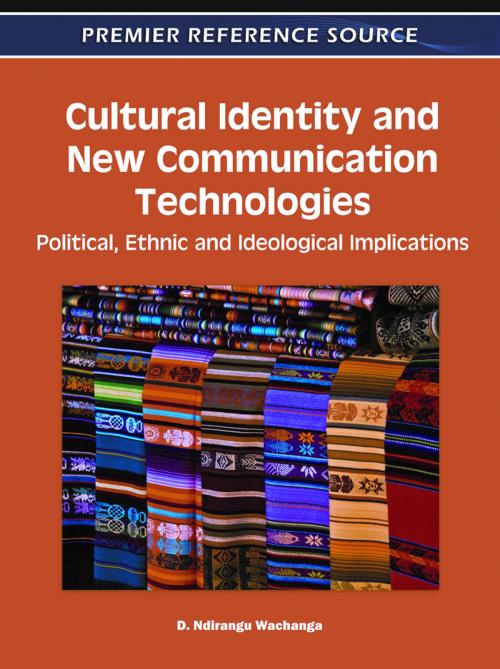Cultural Identity and New Communication Technologies
Political, Ethnic and Ideological Implications
Nonfiction, Computers, Advanced Computing, Management Information Systems, Business & Finance, Industries & Professions, Insurance, Science & Nature, Technology| Author: | ISBN: | 9781466606685 | |
| Publisher: | IGI Global | Publication: | May 31, 2011 |
| Imprint: | Information Science Reference | Language: | English |
| Author: | |
| ISBN: | 9781466606685 |
| Publisher: | IGI Global |
| Publication: | May 31, 2011 |
| Imprint: | Information Science Reference |
| Language: | English |
The intersection of new communication technologies and the ideological hegemony is one area that has not been adequately examined. Existing literature on NCTs shows that most studies have been focusing on NCTs’ potential to alter existing social-political categories that border on economic class, social status, race, gender, and ethnicity. Cultural Identity and New Communication Technologies: Political, Ethnic and Ideological Implications presents a careful blend of conceptual, theoretical and applied research in NCTs. This book examines content that places new communication technologies in a context that recognizes their seamless co-option into the designs of politics and culture, as well as the ideological hegemony of non-Western societies and interrogates the diagnostic degree to which the use of new communication technologies is demonstrative of the users’ imaginary relations to imaginary reality, their thoughts and perceptions. The role NCTs play is significant in so far as they are avenues through which the progression towards the hegemonic (or nationalistic) normative can be catalyzed.
The intersection of new communication technologies and the ideological hegemony is one area that has not been adequately examined. Existing literature on NCTs shows that most studies have been focusing on NCTs’ potential to alter existing social-political categories that border on economic class, social status, race, gender, and ethnicity. Cultural Identity and New Communication Technologies: Political, Ethnic and Ideological Implications presents a careful blend of conceptual, theoretical and applied research in NCTs. This book examines content that places new communication technologies in a context that recognizes their seamless co-option into the designs of politics and culture, as well as the ideological hegemony of non-Western societies and interrogates the diagnostic degree to which the use of new communication technologies is demonstrative of the users’ imaginary relations to imaginary reality, their thoughts and perceptions. The role NCTs play is significant in so far as they are avenues through which the progression towards the hegemonic (or nationalistic) normative can be catalyzed.















